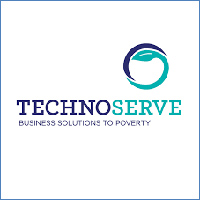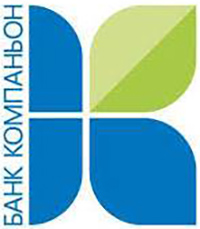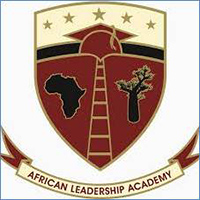2011 Projects – Offered for the first time by Yale’s newly founded Jackson Institute for Global Affairs, 12 students participated in our year-long experimental class. Bracted by two terms (spring then fall), these students used their summer to travel 4 different project hosts across the globe; learning about the practice of social enterprise to match the pedagogy explored in the classroom. Students this year work with partner organizations in Mozambique (Agri-business), Kyrgyzstan (Financial Inclusion), India (health access) and South Africa (education). This year’s project hosts include:
- TechnoServe, Mozambique
- Kompanion, Kyrgyzstan
- Ziqitza, India
- African Leadership Academy, South Africa
TechnoServe – Maputo, Mozambique
 After Mozambique’s independence in 1975 from nearly five centuries of Portuguese rule, the country’s development continued to be hindered by large-scale emigration, drought, and a brutal 15-year-old civil war that ravaged the entire nation. Beyond the emotional and social scars that continue to plague the national conscience, the war destroyed the country’s nascent industries, and by the late 1990s, Mozambique ranked among the world’s poorest nations, with most people toiling on subsistence farms.
After Mozambique’s independence in 1975 from nearly five centuries of Portuguese rule, the country’s development continued to be hindered by large-scale emigration, drought, and a brutal 15-year-old civil war that ravaged the entire nation. Beyond the emotional and social scars that continue to plague the national conscience, the war destroyed the country’s nascent industries, and by the late 1990s, Mozambique ranked among the world’s poorest nations, with most people toiling on subsistence farms.
In the midst of this difficult environment, TechnoServe, a Washington, D.C.-based non-profit organization with decades of experience creating business solutions to poverty, entered Mozambique in 1997 with the goal of stimulating the post-conflict economy from the bottom up. Their list of successful projects to date includes a program to revitalize the nation’s cashew nut industry, once the nation’s largest, as well as a thriving domestic poultry venture, which have provided sustainable livelihoods to Mozambicans across the country. The Yale team was particularly interested in the recent effort to recruit farmer entrepreneurs to be millers of maize – and the followed the challenges a Fatima, as she embarked on a path to earn more income.
Student participants: Diandra Fermin, Paul Joo, Angela Londono Pardo
Kompanion Financial Group – Bishkek, Kyrgyzstan
 Kompanion Financial Group, headquartered in Bishkek, Kyrgyzstan is a microfinance bank with a bold mission. Like other microfinance institutions (MFIs) around the world, Kompanion provides an essential financial service in communities that lack access to credit from the traditional banking sector. These services are especially important in Kyrgyzstan, where the collapse of the Soviet government has left decaying infrastructure and distressed finances. Poverty is especially acute in remote, rural areas. For the farmers and village entrepreneurs who comprise the bulk of the country’s population, MFIs like Kompanion offer a path to a better life.
Kompanion Financial Group, headquartered in Bishkek, Kyrgyzstan is a microfinance bank with a bold mission. Like other microfinance institutions (MFIs) around the world, Kompanion provides an essential financial service in communities that lack access to credit from the traditional banking sector. These services are especially important in Kyrgyzstan, where the collapse of the Soviet government has left decaying infrastructure and distressed finances. Poverty is especially acute in remote, rural areas. For the farmers and village entrepreneurs who comprise the bulk of the country’s population, MFIs like Kompanion offer a path to a better life.
Under the leadership of Chairperson Catherine Brown and CEO Ulanbek Termechikov, Kompanion has grown in six years from a small company to a market leader in the Kyrgyz MFI sector with over 120,000 clients. As it has grown, Kompanion has continued to share the humanitarian philosophy of its parent company Mercy Corps, an NGO focused on economic aid and disaster relief. For Mercy Corps and Kompanion, microfinance is not merely a commercial enterprise but a “social business” (социальный бизнес) that emphasizes people over profits. As the Yale team later noted, their goal to study Kompanion was, as CEO Brown explained: “Our goal was not to create just another financial institution. Our intent was always to make it a development organization.”
Student participants: Jake Mckenzie, Ben Schenkel, Erica Schild
Ziqitza – Mumbai, India
 Ziqitza Health Care Limited (ZHL), has been a pioneer in the Emergency Medical Response Services and Patient Transport Services in India since 2003. ZHL was setup by a group of young professionals who, after their training in the US and entrepreneurial projects in India, realized the acute need for an organized and networked Ambulance service in India, which would also be the fastest emergency response service. ZHL’s vision is to assist in saving human lives by providing a leading network of fully equipped Advanced and Basic Life Support Ambulances across the developing world.
Ziqitza Health Care Limited (ZHL), has been a pioneer in the Emergency Medical Response Services and Patient Transport Services in India since 2003. ZHL was setup by a group of young professionals who, after their training in the US and entrepreneurial projects in India, realized the acute need for an organized and networked Ambulance service in India, which would also be the fastest emergency response service. ZHL’s vision is to assist in saving human lives by providing a leading network of fully equipped Advanced and Basic Life Support Ambulances across the developing world.
Their vision is reflected in our commitment to meet International standards of quality in Emergency Medical Services (EMS) and be accessible to everyone regardless of their income bracket. Our values lie in being ethical, transparent and fostering teamwork. Based on early success in Bombay, Ziqitza was just beginning to expand regionally and the Yale team studied how they were challenged as they moved from urban to more rural areas.
Student participants: Shabdha Chigurupati, Eric Jones, Angela Ramirez
African Leadership Academy – Johannesburg, South Africa
 Founded in 2004, ALA is an innovative boarding school in Johannesburg trying to create some incentives to keep Africa talent in Africa. The two-year African Leadership Academy program targets the continent’s most talented young people, positions them to get top Western-college educations then tries to make sure they come back. The African Leadership Academy’s formula for luring talent is simple: the school offers an education that prepares them for top universities and provides significant aid in the form of forgivable loans to attend. But, there’s a catch - the loans are forgiven only if students return to Africa after the age of 25 and then work at least 10 years on the continent.
Founded in 2004, ALA is an innovative boarding school in Johannesburg trying to create some incentives to keep Africa talent in Africa. The two-year African Leadership Academy program targets the continent’s most talented young people, positions them to get top Western-college educations then tries to make sure they come back. The African Leadership Academy’s formula for luring talent is simple: the school offers an education that prepares them for top universities and provides significant aid in the form of forgivable loans to attend. But, there’s a catch - the loans are forgiven only if students return to Africa after the age of 25 and then work at least 10 years on the continent.
The school’s founders don’t want to simply hold a debt over their students’ heads. Through a curriculum focused primarily on African studies, leadership, and entrepreneurship, the academy tries to show students that, while there are clearly dire needs in Africa, there are also big opportunities. As the Yale team learned from co-founder Fred Swaniker, “They’re not going to come back to Africa out of a sense of altruism, we need to match that passion and sense of giving back to Africa with raw opportunity so that they see it’s in their best interest in every way to come back to Africa.”
Student participants: Samantha Dixon, Jonathan Martin, Mirela Virlanuta
